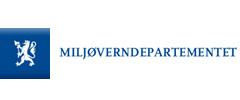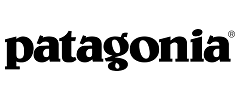AFRICAN REGION PLAYS LEADING ROLE AT GLOBAL NEGOTIATION For Safe Chemicals Management Plan
The African Region is playing a key leadership role at an international meeting to develop a global strategy and support for the safe management of chemicals.
19.09.2012 |IPEN press release
“Use of chemicals is growing very rapidly in the African Region. This international process is our best hope for mobilizing the information, support and resources for us to cope with this situation,” said Abiola Olanipekun, Nigeria Government.
“IPEN has worked closely with the African Regional group since 2003 to prepare for these meetings. We praise the leadership that this delegation has provided not only for Africa, but for countries around the globe,” said Manny Calonzo, IPEN co-chair.
Three key issues were advanced by the governments of the African Region at the third meeting of the International Conference on Chemicals Management (ICCM), being held in Nairobi, Kenya. They were on chemicals known as “endocrine disrupters;” lead in paint; and long term financing for safe chemicals management.
1. A proposal for a set of activities that will advance knowledge about the impact of class of chemicals known as “endocrine disrupters.”
Endocrine disrupting chemicals (EDCs) interfere with the ability of hormones to control vital systems that orchestrate development, metabolism, immune function, reproduction, intelligence and behavior. Scientific evidence continues to link EDCs to a host of diseases, including: cancers, cardiovascular disease, diabetes, obesity, deformities, and various reproductive disorders. These chemicals are found in a wide variety of consumer products and in many pesticides. Certain phthalates and bisphenol A (BPA) are common examples of EDCs that some governments have regulated in some countries. Young and unborn children are particularly vulnerable to the permanent effects of EDCs.
Recognizing the insufficiency of efforts on EDCs in all countries, but particularly in developing countries, the African region collectively proposed a set of “common sense” activities on EDCs, to increase understanding and awareness about these chemicals. The African initiative included workshops on EDCs in developing countries; facilitating access to information on endocrine disruption and EDCs; capacity building in developing countries and countries with economies in transition to assess issues related to endocrine disruption; a means of providing timely information about important developments in this field to all countries; and case-studies on the use of suspected endocrine disrupting chemicals in pesticide formulations and select categories of consumer products.
2. A proposal to assist African and other governments develop regulatory frameworks to eliminate leaded paints.
Lead paints have been identified as a significant source of childhood lead exposure and are associated with decreases in intelligence as measured by intelligence quotient (IQ) scores, school performance and educational achievement and results in a loss of lifelong earning potential. Leaded decorative paints are not sold or used in most highly industrial countries, but they are widely available for sale and use in many developing countries and countries with economies in transition. For example, a recent study of oil-based paints for household use in Nairobi, Kenya found that 27 out of 31 paint samples contained hazardous levels of lead. Good and affordable substitutes for lead pigments and other lead compounds used in paint are cost effective and have been widely available for decades.
The African government officials submitted a formal proposal supporting the following actions: national regulatory frameworks to control the manufacture, import, export, sale and use of lead paints; voluntary reformulation of lead paints by manufacturers utilizing non-toxic or less toxic substitutes; initiatives that provide small and medium-size paint manufacturers with information and capacity-building to eliminate lead paints; third-party certification and labeling of paint products without added lead; and guidance materials on how to minimize potential lead exposure in and around housing, childcare facilities, schools and other buildings where lead paint has been used in the past.
3. Creating a long-term funding mechanism for chemicals and waste.
ICCM established a Quick Start Program at its first meeting in 2006 to fund enabling activities that would help governments establish policy mechanisms, regulatory frameworks and in other ways lay the groundwork for implementing safe chemical management policies and programs. The Quick Start Program, however, expires after this meeting unless it is extended. A more robust and sustainable financial mechanism for the sound management of chemicals and wastes is needed.
The African government representatives made a formal proposal to expand the Quick Start Programme for eight years, and to also establish a more robust long-term financial mechanism to enable developing countries and countries with economies in transition establish and implement national programs to prevent harms to human health and the environment from toxic chemicals and hazardous wastes.
-END-
IPEN is a leading global organization working to establish and implement safe chemicals policies and practices to protect human health and the environment whose mission is a toxics-free future for all. IPEN helps build the capacity of its member organizations to implement on-the-ground activities, learn from each other’s work, and work at the international level to set priorities and achieve new policies.
Related News
Getting to the Future We Want
4-7 November, Brussels: European Environmental Bureau’s (EEB) Annual Conference
12.11.2018
Human Biomonitoring for Europe
Vienna, 26 September: stakeholder forum
28.09.2018
A life without plastic, wouldn't it be fantastic?!
Interview with Charlotte Schueler of @PlastikfreiLeben, who lives a zerowaste life in Munich, Germany and shares her experiences to her 25.2 thousand followers on instagram & 37.2 thousand followers on facebook
14.09.2018
Calling for periods free from plastic & hazardous chemicals
Letter to Frédérique Ries, MEP, European Parliament on behalf of the #BreakFreeFromPlastics movement
04.09.2018







































